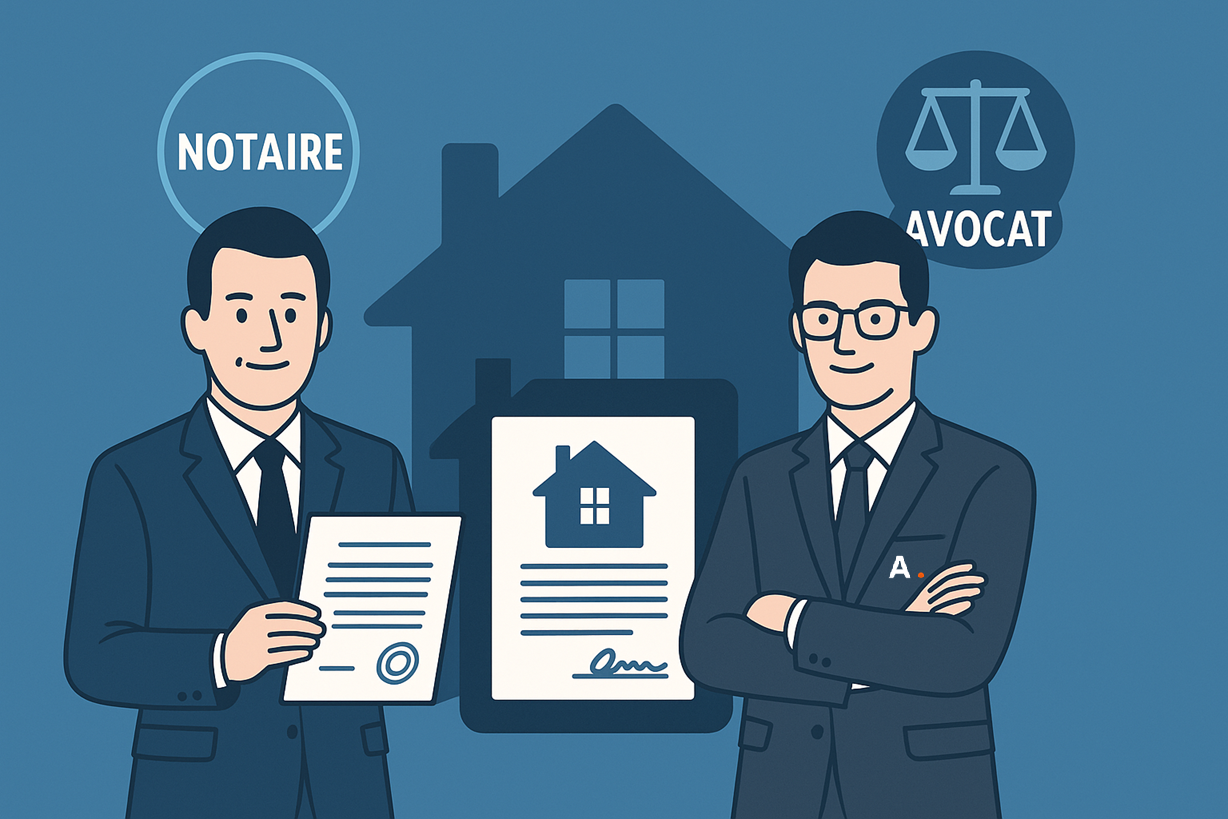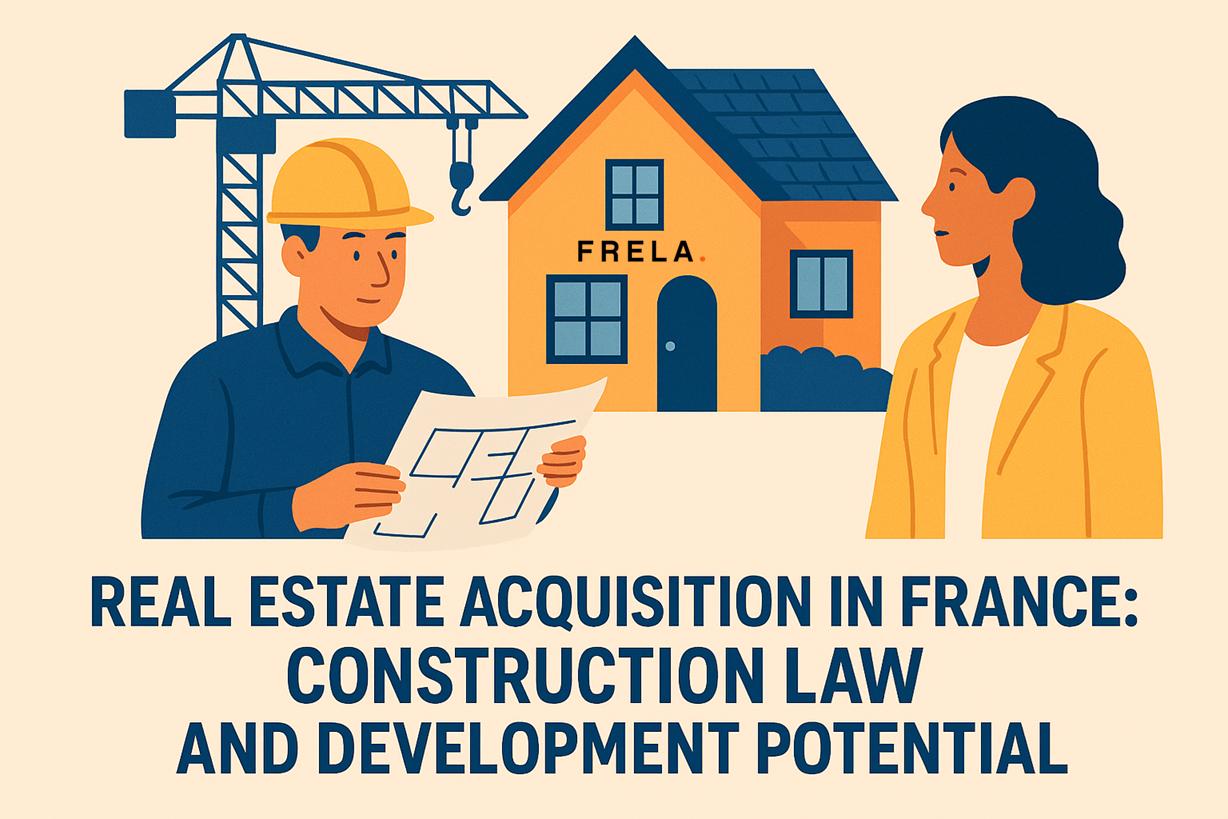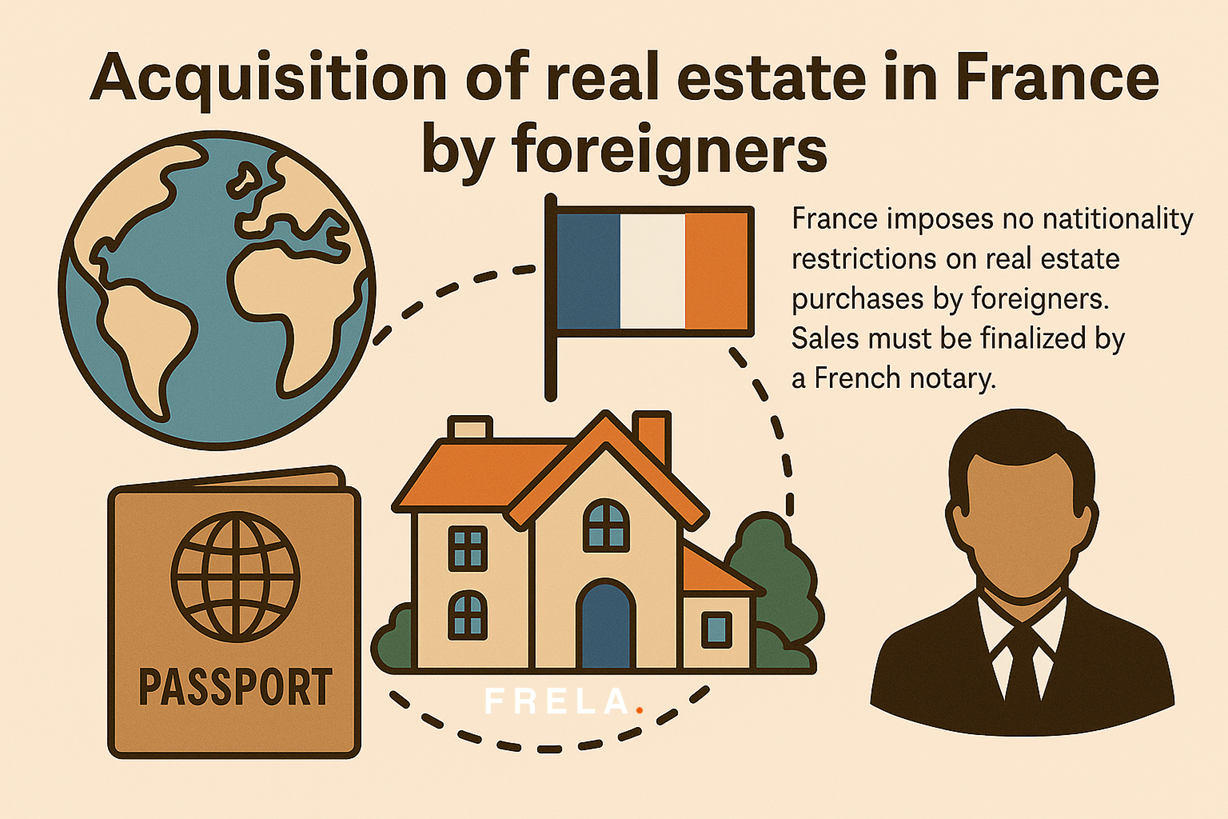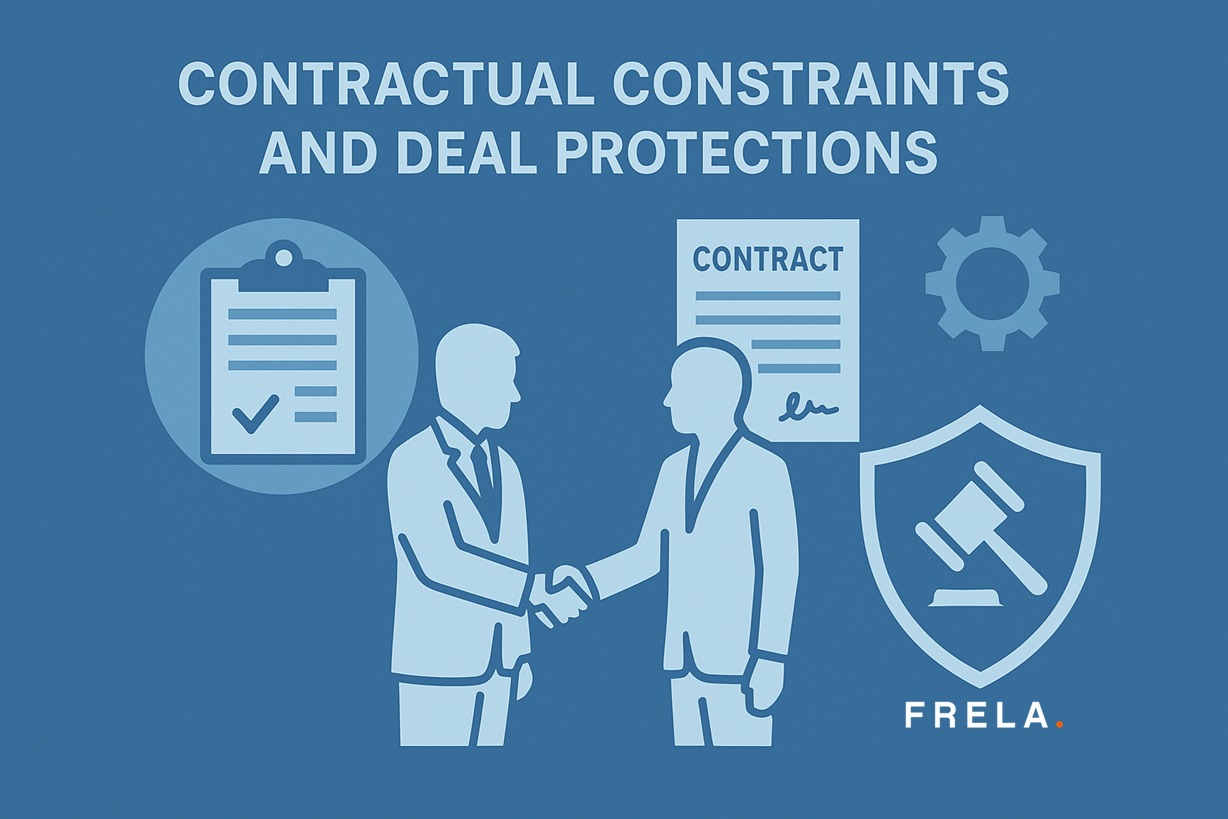Investing in France from abroad, the culture shock
Are you one of many foreign investors considering investing in real estate in France? You might want to read this.
Being one of the largest investment markets in continental Europe, due to its stable economy and legal system, as well as its history and cultural reputation, France is appealing to property investors, may they be institutional or personal.
Moreover, South of France, or so called “Europe’s Retirement home”, is growing to be one of the main places in France, to invest property. Hence, it seems to be essential for us at Delcade to trivialize this matter and make it more accessible to the public.

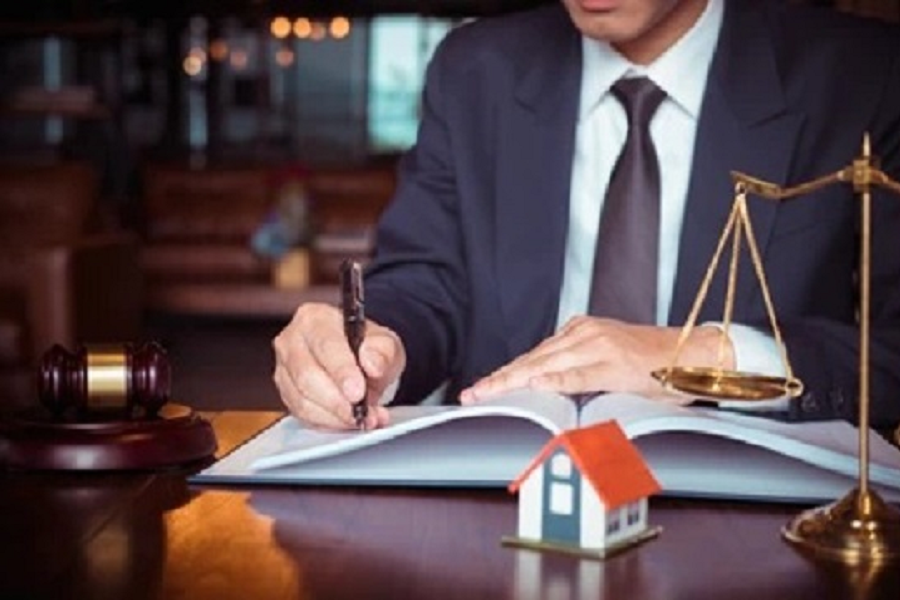
The principle of Freedom of Establishment:
The principle of Freedom of Establishment allows companies based in different European Union member states to develop their cross-border activities. Thus, it makes it possible for a foreigner to invest in France in our case. The law does not reserve real estate ownership to nationals only. Therefore, whether you are a resident of the European zone or not, you can buy real estate in France. In fact, the official investment system in France is one of the least regulated in the world: only a French bank account and a valid identity certificate are required for foreign investors.
In addition, it is possible for foreign investors to acquire holdings. And if all foreign investments must be declared at the Central Bank of France for statistics, most of them must be notified to the Attorney General who will decide whether prior approval is required or not.
Even though the scope of protection offered to foreign investors by EU law has become a matter of intense political debate, the “filtering” of direct investments made by non-European operators was validated by the Regulation (EU) 2019/452 of the European Parliament and of the Council of 19 March 2019. The FDI screening mechanism is based on the prior authorization of the Minister of Economy for any foreign investment in an activity that involves “sensitive industries”, as specified in Article L151-3 of the French Monetary and Financial Code and completed by the PACTE law, supplemented by a decree and an order of 31 December 2019.
Fundamental Principles of Foreign Investment Protection:
The Fundamental Principles of foreign investment protection ensure that all foreign investors are treated fairly and equally. This principle is important because it ensures that all investors are given the same level of protection. France has signed bilateral investment treaties with 115 different countries, ensuring to foreign investors in France an investment-friendly climate, as well as a legal framework that is relatively stable and transparent.
Recently, several reforms aimed at reviving the national economy and attracting foreign investors, have emerged. Per say, the charge of administrative formalities for the establishment of foreign companies was reduced. Foreign companies have had access to the same subsidies as French companies. And the corporate income tax rate has been reduced from 33% to 25% in 2022.
Office Real Estate and Land Ownership:
If Instant Offices or Regus could constitute temporary solutions, there is a possibility of buying land, industrial, and commercial buildings. In fact, companies controlled or registered abroad are free to invest in real estate in France, and can buy freehold or leasehold, to develop industrial and commercial sites or to buy through a real estate agency.
In real estate matters, it is the law of the property that applies, in this case French law. Our experienced team of lawyers and tax professionals have a wide range of legal expertise in this matter. Any foreigner is therefore subject to the French tax system for the taxation of rental income and real estate capital gains, and rules of ownership are effectively binding.
Mortgage loan for non-residents in France?
If you are planning to invest in real estate and want to use a loan for the purchase, it is important to know that banks do not give loans to non-residents on the same terms as they do for French residents. On average, rates for residents are lower than rates for non-residents. This being mainly because of the difficulty that any French bank might face in evaluating a non-resident’s resources and financing capability. Some parameters do still apply, so much so, that banks could be more willing to offer favorable rates, for example if the customers have placed their savings and current accounts in the same establishment delivering the mortgage. More factors apply as well, such as the application fees, the nominal rate, the conditional clause, the deposit, and life insurance.
Real estate lawyers, a precious tool for your investment:
In advance to any real estate acquisition, the foreign buyer must be aware of the taxes and conditions that apply. The assistance of a professional specialized in the field of real estate law, therefore, proves to be an important, if not essential step, so that the foreign investor acknowledges the entire spectrum of his rights and obligations.
And that is where we intervene. In this regard, our real estate lawyers will help you choose the investment that is best suited to your situation and expectations. At Delcade we understand that different people might have different aspirations, and we welcome clients from a variety of backgrounds, income levels, and financial goals. We provide a highly personalized level of services that are entirely focused on establishing our clients’ aspirations. Once we’ve covered all the specific aspects of your investment strategy (from location and type of property to fees, taxes, legality, and other expenses), you’ll be ready to begin your search at ease, ensuring that your investment stays as fruitful as it gets, on the long term!
How to find a property from abroad?
In remote places, and especially if you do not speak French very fluently, it is very common to contact a real estate agent. That way you ensure having access to all the available properties. They usually take up to 8% of the total cost fees, but you could also sometimes benefit from a discount. That being said, if you have the budget, and are willing to work with an agent here are some of the most well-reputed agencies: French Character Homes, SMJ Immobilier, and Lomagne Immobilier. If not, it is always possible to start your seach online via Righmove, LeBonCoin, or Seloger.com per example.
The role of the French notary:
Being a Public Officer, a highly competent legal adviser, and solicitor, the Notary is the only person authorized to set up mortgage, sales transactions, and gifts. Even though his missions do not include litigations, his role consists in verifying that the buyer and seller both have the capacity to buy or sell depending on the case, and that the sold property has full legal existence and is free of mortgage. Not to forget his experience with foreign clients that can always be beneficial to the investors.
And if in France, it is unavoidable to use a notary to acquire or sell real estate, it is far from the case everywhere in the world. Foreigners who want to invest in France will need to make good connections with people in the French community or else build a network of real estate agents who are used to dealing with this culture shock.
Real estate conveying in France:
The signing of the original deed of sale constitutes the transfer of ownership. The notary witnesses the signing, which marks the transfer of ownership from the previous owner to the purchaser. The real estate agency, if any, should alert you about the progress of the transfer of ownership, as well as the procedures to follow, in case of disagreement, in the absence of the second signatory, and so on. The payment of the complete transaction price and ancillary costs, such as notary fees and registration fees, occurs with the transfer of ownership.
The acquisition of real estate in France by a non-resident has led to a significant increase in transfers of funds, which are subject to the control of French banks and credit institutions in the context of the fight against money laundering.
What taxation for a foreign real estate investor in France?
The French tax system is a declarative system based on statutory law: the French Tax Procedure Law “Livre des procédures Fiscales” and the General Tax Law “Code Général des Impôts”.
French real estate may be taxed whether it is transferred for valuable consideration (sale) or not (gift, inheritance). In these circumstances, the tax is usually in the form of a registration fee.
The fact that French real estate is owned may also be taxed. In that situation, they are subject to an annual tax on their total value in the form of a wealth tax, a 3% tax on property, and a residence tax. The seller of real estate may also be subject to capital gains tax on gains realized from the disposal of the property.
An individual is “resident in France for tax purposes” if they live in France, if their main residence is in France, or if they are employed in France, whether they are paid or not, unless they can prove that it is a secondary activity, or if the center of their economic interests is in France.
Independently of the nationality, those residing in France for tax purposes are subject to tax on their worldwide income. In parallel, as a non-resident, they will only be subject to French wealth tax if the value of their property in France exceeds the tax limit. Therefore, the value of the building located in France matters. In this case, most tax treaties allow the State where the building is located (France) and the State of residency of the investor to tax property income concurrently. The techniques for eliminating double taxation imposed by your state of residence are then provided.
How to manage your property from abroad?
Traveling to France to manage your property can be a time consuming and complicated process. That is why it is fundamental to find the right local management company to support you and your guests, if any. This procedure should give you peace of mind and should eliminate the obligations of owning or visiting your property abroad. Being in diligent hands, your property will be managed by professionals, ensuring you benefit practically, and to the best extend, from your investment.
The case of the French vineyard:
Being considered as an investment in “Patrimoine”, its prices are lower than those for property. Nevertheless, foreign investors only hold about nearly 2% of the French vineyards, most of them being based in Provence and Bordeaux.
Before buying a French vineyard, some formalities are demanded: satellite surveys, checking the winery for contamination, examining the vines for viruses, pre-emption rights should be ascertained, and an application should be sent to the Chamber of Agriculture to get an authorization to farm.
About the Author :
Business lawyers, bilingual, specialized in acquisition law; Benoit Lafourcade is co-founder of Delcade lawyers & solicitors and founder of FRELA; registered as agents in personal and professional real estate transactions. Member of AAMTI (main association of French lawyers and agents).
FRELA : French Real Estate Lawyer Agency, specializing in acquisition law to secure real estate and business transactions in France.
Paris, 19 Rue du Colisee, 75008 Paris
Bordeaux, 78 Cours de Verdun, 33000 Bordeaux
Lille, 40 Theater Square, 59800 Lille


